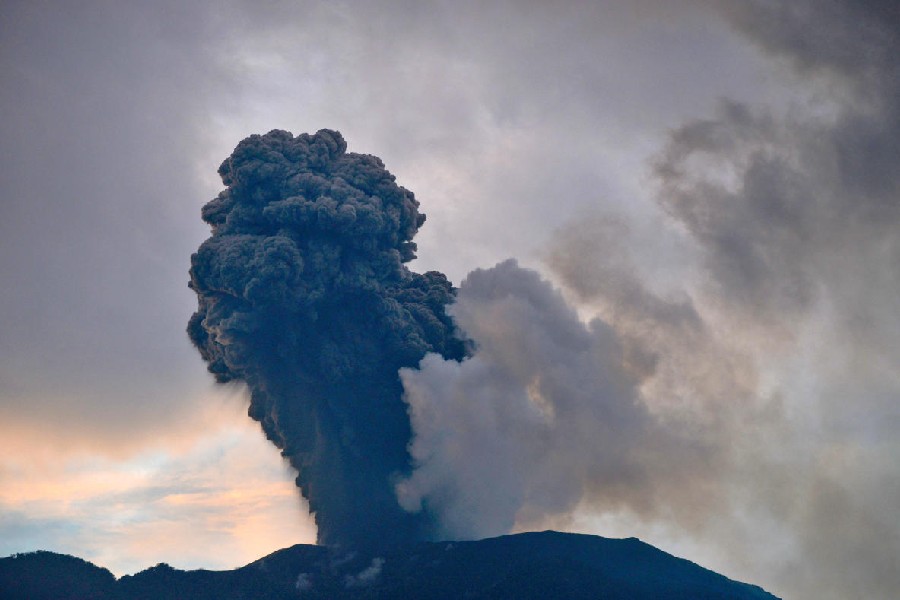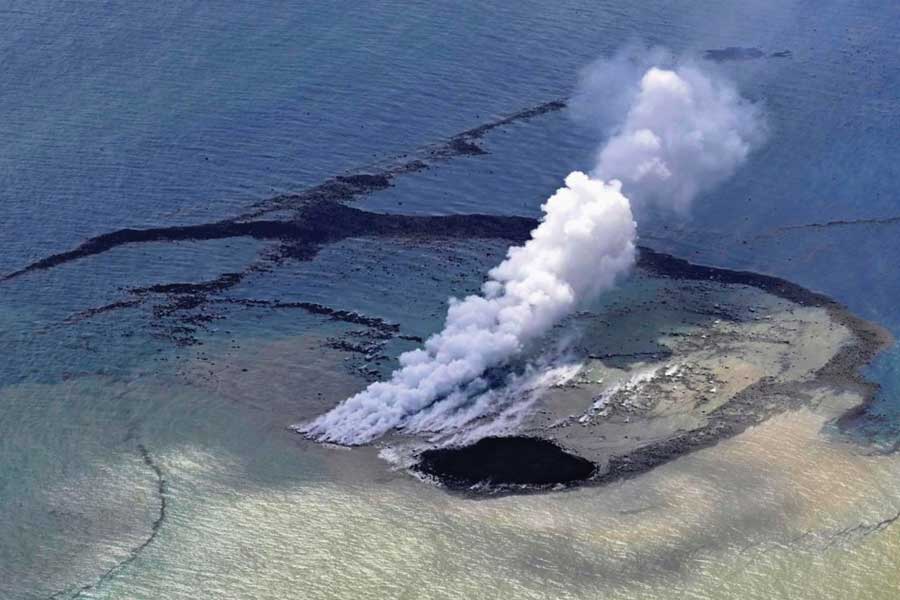Indonesia's Mount Marapi erupted again on Sunday, spewing smoke and ash high into the air, but no casualties were reported.
The Marapi Volcano Observation Post in West Sumatra province recorded an eruption with an ash column about 1,300 meters (4,265 feet) high from its peak, followed by ash rain. Sprays of ash from the eruption were seen blanketing roads and vehicles in nearby villages.
At least 100 residents have been evacuated since Friday after Indonesian authorities raised the alert level of the volcano from Level 2 to Level 3, or the second-highest level, on Wednesday.
Marapi is known for sudden eruptions that are difficult to predict because they are not caused by a deep movement of magma, which sets off tremors that register on seismic monitors.
Its eruption in early December shot thick columns of ash as high as 3 kilometers (more than 9,800 feet) that killed 24 climbers and injured several others who were caught by a surprise weekend eruption.
About 1,400 people live on Marapi's slopes in Rubai and Gobah Cumantiang, the nearest villages about 5 to 6 kilometers (3.1 to 3.7 miles) from the peak.
Marapi has been active since an eruption in January last year that caused no casualties. It is among more than 120 active volcanoes in Indonesia, which is prone to seismic upheaval due to its location on the Pacific “Ring of Fire,” an arc of volcanoes and fault lines encircling the Pacific Basin.











